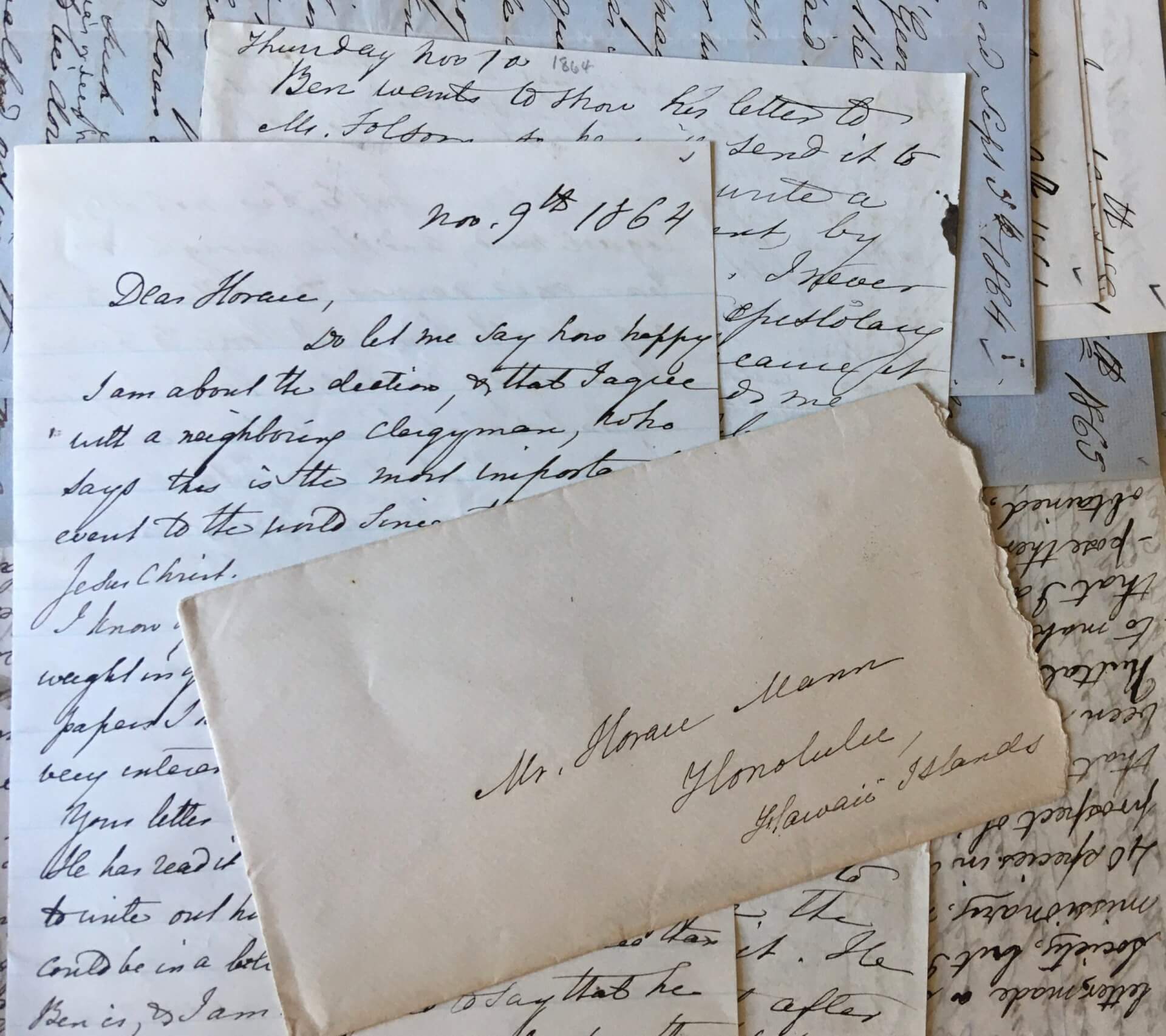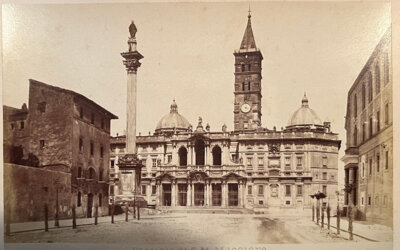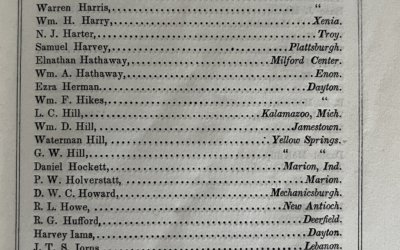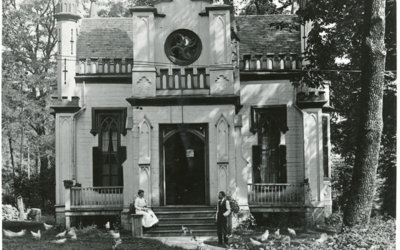In a well-timed coda of letters to Horace Mann Jr. in Hawaii, his mother Mary Mann opens with a thought shared then and now by millions and millions of people around the world: the monumental importance ascribed to the outcome of an American presidential  election. In 1864 and 2020 both, the “soul of the nation” was at stake as president-elect Joseph R. Biden, Jr. put it during his campaign. Had the Democrats won in Mary’s time, the US Civil War might have ended without victory and with chattel slavery largely intact in the states where it still existed. Had the Republicans won last week…well, let’s not go there.
election. In 1864 and 2020 both, the “soul of the nation” was at stake as president-elect Joseph R. Biden, Jr. put it during his campaign. Had the Democrats won in Mary’s time, the US Civil War might have ended without victory and with chattel slavery largely intact in the states where it still existed. Had the Republicans won last week…well, let’s not go there.
For obvious reasons, it’s been an exhausting week at the end of an exhausting term, so please forgive me for not saying much else about her letter (not to mention the abrupt change to first person voice). The “Sailor’s Fair” Mary mentions was a fundraising event for the United States Navy. The general helpful to the cause of cousin Maria Mann’s school, Ethan Hitchcock, had been a military advisor to President Lincoln and headed up the agency in charge of prisoners of war. “Mr. Folsom” might be Charles, a Harvard librarian, and he might not (the Manns knew lots of Folsoms). “Ellen F.” also a Folsom, was perhaps Horace Mann Jr.’s closest friend.
Nov. 9th 1864
Dear Horace,
Do let me say how happy I am about the election, & that I agree with a neighboring clergyman, who says that it is the most important event to the world since the advent of Jesus Christ.
I know of no other books ‘worth their weight in gold.’ These cost 9 dollars. The papers I have stuffed in contain some very interesting speeches.
Your letter to Ben was most opportune. He has read it over & over again, & begun to write out his travels for you. Nobody could be in a better state of conscience than Ben is, & I am delighted to say that hs thinks more of what you & G. say than of what any one else says — for I shall like to think that you will always have influence over him, and you will have if you can bear with his crudities — but he has not a logical mind, and it is enough to tear one’s nerves to tatters to argue with him. I long to have him study Euclid — and I expect a great deal of him when more mature, but it is a psychological phenomenon to me to see the difference there is between him & you two boys in that respect. He can see that two and two make four, mathematically, which some people cannot, but he does not apply the proposition to morals — but is always in puzzles about how things ought to be — & so afraid of not being independent in thought that he loses the advantage of other people’s thoughts. It is the occupation of my days & I may almost say of my nights to think of the right thing to say to him about this & that, and to keep him from suffering too much from his want of insight into relations between people and between things. But he is so desirous of doing every thing right that I am encouraged to think he will see into things and their relations more to his satisfaction bye & bye. I don’t want him to go to college till his ideas are more settled, because I want him to enjoy & not contend with his companions (I do not mean fight, but dispute). George has such pleasant relations with every body that I hope he will get it by magnetism, as it were, since he admires G. so much. Your views about what he should do he has great respect for, & thinks your method of doing every thing the very best. There is no other influence I value so much. He looks quite handsome since he has grown so tall (6 feet 5 inches) and more & more like papa’s figure, so that everyone remarks it. I have been looking over manuscripts from which papa published, to find autograph sentences for the Sailor’s Fair — for a good autograph sentence will sell for a dollar — and find a great many little scrap books containing sentences (I do not give any thing away that has not been published) and Ben is greatly interested in every word. You want to know what I am thinking about — and now you know.
I believe I told you Cousin Maria has had some difficulties in her orphan school in Georgetown. They have resulted in setting her & the school on a firmer foundation than ever. Gen. Hitchcock & Charles W. Dana have taken up the matter quite warmly, as well as many other good people. All good things will go well now, I think — it is a new era in the world. I hope gold will go down while other good things go up. I hope to be able to get my book published now. B. sends you a sheet of his travels, I shall exhort him to write the rest more legibly. Good night.
your loving mother
Mary Mann
(The following enclosed with the above)
Thursday Nov 10
Ben wants to show his letter to Mr. Folsom, so he will send it to you by mail. He will write a great deal better account, by writing it to a person. I never can help thinking the epistolary form is the easiest, because it is so to me. This reminds me of a book called the Schönberg Cotter Family which I want you to read some time. Perhaps some one will have it there, and now you are among the literary people you will be able to get books. I do not add to the weight of this package because it costs so much. George has just arrived to attend a dance & invited Frank Stearnes to come with him. G. still loves to dance enough to take the trouble to come up for it. He is off again down street after some lady to go with him, I suppose. I want you fully to understand one view I have of your absence. It has worked beneficently just in the way I expected. It is good for people to hold each other at arm’s length sometimes, to see each other in perspective, as it were, where petty differences do not warp the judgment, and real qualities appear in their true proportions. I have seen & felt the good of it myself, and I was sure it would work well for Ben. It is well for him to be here alone with me for a while, long enough to “orient himself” without feeling himself compared by others. He compares himself with you & G. which is a useful way to look at himself, but it needs quiet & absence of excitement to be able to do this. He is very much influenced by the way people feel toward him — he does not wish to be flattered, but he enjoys being appreciated. He is of a temperament which makes this of real consequence to him. I can say a thousand things to him now which I never could before without fretting him or hurting his feelings. Your spiritual presence is of immense value. He has laid aside his pranky ways & enjoys being thought a young gentleman instead of a boy. His simplicity always interests me, tho it sometimes makes him appear childish. He is just at the age when ideas are being potent. I am never tired of watching youthful struggles & experiments.
Where I see principle working I always know things will come out right— but I sympathize very much with the strivings. He is going to the first party where he has appeared in this new character. Ellen F. is going with him so I hope he will enjoy it.
Mother
“Songs From the Stacks” is a regular selection from Antiochiana: the Antioch College archives by College Archivist Scott Sanders.



